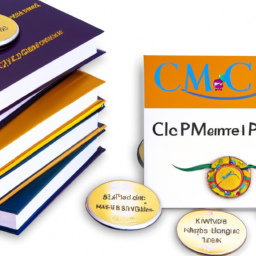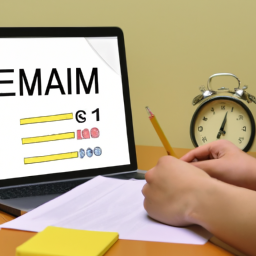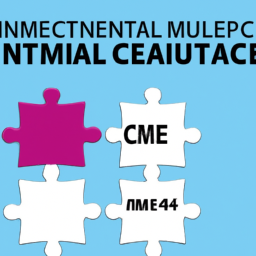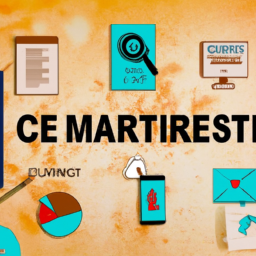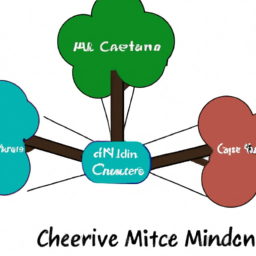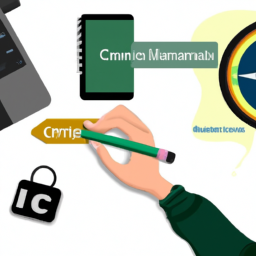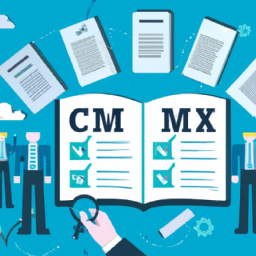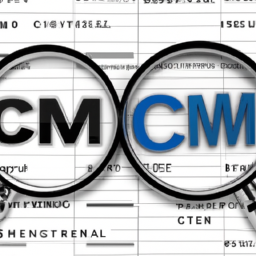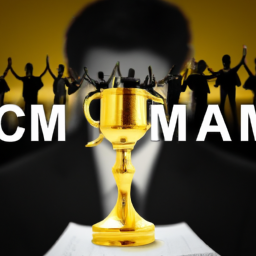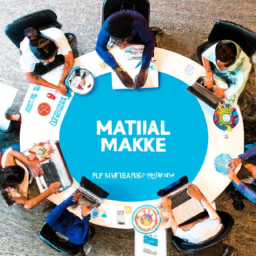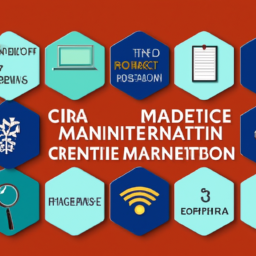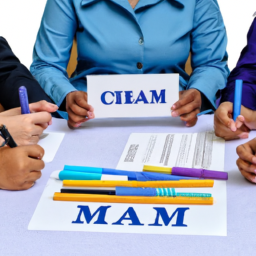Are you ready to test your skills? The CMI exam will put you to the test on 7 essential skills. From critical thinking to teamwork, this exam will challenge you like never before.
Don’t worry though, with proper preparation, you can conquer it all. In this article, we will explore these skills in detail, giving you the knowledge and confidence you need to succeed.
So, let’s dive in and discover what it takes to excel in the CMI exam.
Key Takeaways
- Critical thinking and problem-solving skills are crucial for analyzing information, evaluating arguments, making logical decisions, and approaching challenges with a systematic mindset.
- Innovative problem-solving techniques such as design thinking, mind mapping, reverse thinking, and six thinking hats can help in identifying potential solutions and analyzing complex issues.
- Effective decision-making strategies involve gathering relevant information, weighing pros and cons, considering risks and uncertainties, and minimizing biases to make objective decisions.
- Communication and leadership skills are important for conveying ideas and instructions clearly, being an active listener, adapting communication style to the audience, and having a clear vision for the team and organization.
Skill 1: Critical Thinking
Critical thinking is essential for success in the CMI exam. This skill involves the ability to analyze information, evaluate arguments, and make logical decisions. In the exam, you will encounter complex scenarios that require you to think critically and solve problems effectively.
By demonstrating your critical thinking skills, you show that you can think independently and make sound judgments. This skill is highly valued in the professional world, as it enables you to approach challenges with a logical and systematic mindset.
To enhance your critical thinking abilities, practice analyzing different perspectives, questioning assumptions, and evaluating evidence. By honing this skill, you will not only excel in the CMI exam but also in your future career, where critical thinking is key for making informed decisions and solving complex problems.
Skill 2: Problem Solving
When it comes to analyzing complex issues, you need to develop innovative problem-solving techniques in order to effectively address the challenges at hand.
By utilizing these techniques, you can navigate through intricate problems and come up with effective decision-making strategies.
This discussion will explore the importance of analyzing complex issues, the use of innovative problem-solving techniques, and how they contribute to effective decision-making.
Analyzing Complex Issues
Analyzing complex issues requires a deep understanding of the subject matter. When faced with a complex problem, it is crucial to break it down into smaller components and examine each one individually. By doing so, you can gain a comprehensive understanding of the issue at hand and identify potential solutions.
Problem-solving techniques such as root cause analysis, SWOT analysis, and critical thinking are essential tools in this process. Root cause analysis helps you identify the underlying cause of the problem, while SWOT analysis allows you to evaluate the strengths, weaknesses, opportunities, and threats associated with different solutions. Critical thinking enables you to assess the validity and reliability of information and make informed decisions.
Innovative Problem-Solving Techniques
Problem-solving techniques like root cause analysis, SWOT analysis, and critical thinking are vital tools in gaining a comprehensive understanding of complex issues. However, in today’s fast-paced and ever-changing world, traditional problem-solving methods may not always be sufficient. That’s where innovative problem-solving techniques and creative thinking come into play.
These approaches can help you think outside the box, generate new ideas, and find unique solutions to complex problems. Here are four innovative problem-solving techniques to consider:
-
Design Thinking: This approach focuses on understanding the needs of the end-users and designing solutions that meet those needs effectively.
-
Mind Mapping: This technique allows you to visually organize your thoughts and ideas, making it easier to identify connections, patterns, and potential solutions.
-
Reverse Thinking: Instead of focusing on the problem, this technique encourages you to imagine the desired outcome and work backward to determine the steps needed to achieve it.
-
Six Thinking Hats: This method involves wearing different ‘hats’ to explore a problem from different perspectives, promoting diverse thinking and generating creative solutions.
Effective Decision-Making Strategies
Effective decision-making strategies are crucial in navigating complex situations and making informed choices. The decision-making process involves evaluating options, analyzing the potential outcomes, and selecting the best course of action.
It is important to approach decision-making with a systematic and logical approach, using decision analysis techniques to gather relevant information, weigh the pros and cons, and consider the potential risks and uncertainties. By employing these strategies, you can minimize biases and make more objective decisions.
Developing strong decision-making skills is essential for professionals in any field, as it allows them to handle challenging situations effectively and achieve desired outcomes.
In the next section, we will discuss the third essential skill tested in the CMI exam: decision making. By mastering this skill, you will be well-equipped to tackle complex decision-making scenarios and contribute to the success of your organization.
Skill 3: Decision Making
When it comes to decision-making, it’s important to consider all possible options before making a choice. To enhance your decision-making skills, here are four effective techniques to keep in mind:
-
Rational Decision Making: This approach involves gathering relevant information, analyzing the pros and cons of each option, and making a logical choice based on facts and data.
-
Intuitive Decision Making: Trusting your instincts can lead to quick and accurate decisions, especially in situations where time is limited and information is scarce.
-
Group Decision Making: Collaborating with others can provide diverse perspectives and insights, leading to better decisions through consensus or voting.
-
Decision Trees: This visual tool helps you map out different alternatives and their potential outcomes, making it easier to evaluate the best course of action.
By utilizing these decision-making strategies and techniques, you can make well-informed choices that align with your goals and values.
Transitioning to the next section, effective communication is another essential skill that you need to master.
Skill 4: Communication
Now that you’ve learned about the importance of decision making, let’s move on to another essential skill tested in the CMI exam: communication.
Effective communication techniques play a crucial role in every aspect of professional life. Clear communication is vital for conveying ideas, instructions, and information accurately and efficiently. It helps in avoiding misunderstandings, conflicts, and mistakes.
When communicating, it is important to use simple and concise language, be an active listener, and adapt your communication style to the needs of your audience. Non-verbal cues such as body language and tone of voice also play a significant role in effective communication.
Mastering these techniques will not only help you in passing the CMI exam but also in your professional career, where clear communication is essential for success.
Skill 5: Leadership
As a leader, you’ll need to inspire and motivate your team to achieve their goals. Leadership development and training are essential to becoming an effective leader. Here are four key aspects to focus on:
-
Communication: Effective communication is crucial for a leader to convey their vision, provide clear instructions, and listen to their team’s feedback.
-
Visionary thinking: A strong leader has the ability to think strategically and envision the future. They inspire their team with a clear direction and purpose.
-
Decision-making: Leaders must make timely and well-informed decisions. They weigh the pros and cons, analyze the situation, and consider the impact on their team and organization.
-
Emotional intelligence: A leader with high emotional intelligence understands and manages their own emotions and those of their team members. They build strong relationships, resolve conflicts, and create a positive work environment.
Investing in leadership development and training will help you develop and enhance these skills, ultimately enabling you to lead your team to success.
Skill 6: Time Management
To improve your time management, prioritize your tasks based on importance and urgency. This technique allows you to focus on the most critical tasks first and ensures that you are not wasting time on less important activities. Time management is crucial in today’s fast-paced world, where demands and distractions are constantly vying for your attention. By effectively managing your time, you can increase productivity, reduce stress, and achieve your goals more efficiently.
Here are some time management techniques that can help you stay organized and make the most of your time:
| Technique | Description |
|---|---|
| Prioritization | Rank tasks based on importance and urgency |
| Time blocking | Allocate specific time blocks for different tasks |
| Pomodoro Technique | Work in focused bursts followed by short breaks |
| Delegate | Assign tasks to others to free up your time and energy |
Skill 7: Teamwork
Working collaboratively with others is key to achieving success in any team project. When it comes to collaborative problem solving, effective team communication plays a crucial role. Here are four essential aspects of teamwork that can help you excel in any team project:
-
Active Listening: Actively listening to your teammates allows you to understand their perspectives and ideas, fostering a more inclusive and collaborative environment.
-
Clear Communication: Transparent and concise communication ensures that everyone is on the same page, reducing misunderstandings and promoting effective problem-solving.
-
Flexibility: Being open to different ideas and approaches encourages creativity and innovation within the team, resulting in more comprehensive and well-rounded solutions.
-
Conflict Resolution: Conflict is inevitable in any team project, but addressing it promptly and constructively helps maintain a harmonious working environment and enhances overall team performance.
Frequently Asked Questions
How Is Critical Thinking Different From Problem Solving?
Critical thinking and problem solving are distinct but interconnected skills. Critical thinking involves analyzing information, evaluating different perspectives, and making logical judgments.
On the other hand, problem solving focuses on finding effective solutions to specific issues or challenges.
While critical thinking techniques help you assess and understand complex situations, problem solving strategies enable you to devise and implement practical solutions.
Both skills are crucial in the workplace and can be developed through practice and experience.
What Are Some Effective Techniques for Improving Decision Making Skills?
To improve your decision-making skills, there are several effective techniques you can use.
First, consider using decision-making strategies such as brainstorming and weighing pros and cons. These techniques can help you gather and evaluate information more effectively.
Additionally, it’s important to understand the decision-making process, which involves identifying the problem, generating alternatives, evaluating options, and making a choice. By practicing these strategies and understanding the process, you can become more confident and effective in your decision-making abilities.
How Can Effective Communication Contribute to Successful Leadership?
Effective communication is crucial for successful leadership. When you can communicate effectively, you are able to clearly convey your thoughts, ideas, and expectations to your team. This helps to build trust, foster collaboration, and promote a positive work environment.
Additionally, effective communication enables you to listen actively to your team members, understand their needs and concerns, and provide them with the support they require.
Overall, effective communication plays a vital role in ensuring effective leadership and achieving organizational goals.
What Are Some Strategies for Managing Time Effectively in a Team Setting?
To manage time effectively in a team setting, you need to utilize various time management techniques and implement team productivity strategies.
Prioritize tasks, set clear deadlines, and delegate responsibilities to ensure everyone is on the same page.
Encourage effective communication and collaboration to avoid unnecessary delays.
Use technology tools like project management software to track progress and stay organized.
Regularly evaluate and adjust your plans to optimize efficiency and meet team goals.
How Can Teamwork Skills Be Developed and Improved?
To develop and improve your teamwork skills, start by engaging in team building activities that promote collaboration and communication. Participate in exercises that encourage problem-solving and decision-making as a group.
Additionally, practice active listening and providing constructive feedback to your team members. Regularly reflect on your own performance and areas for improvement.
Conclusion
In conclusion, the CMI exam tests your proficiency in seven essential skills that are crucial for success in the business world. By assessing your critical thinking, problem-solving, decision-making, communication, leadership, time management, and teamwork abilities, this exam provides a comprehensive evaluation of your capabilities.
So, buckle up and get ready to showcase your skills in a way that will blow the socks off the examiners. Trust me, it’s a ride you don’t want to miss!


